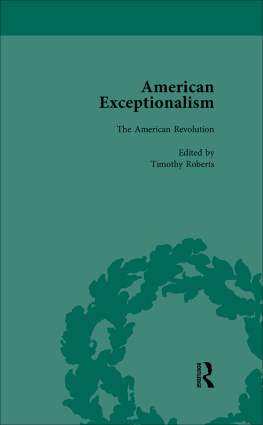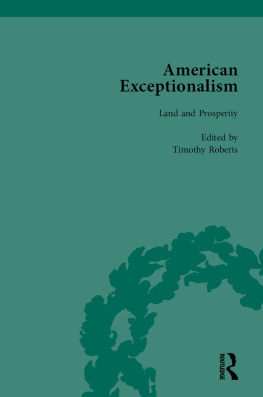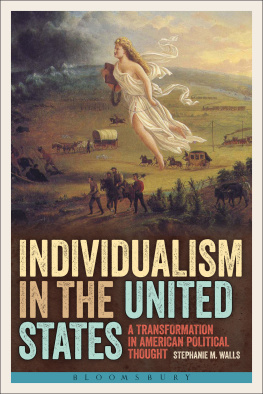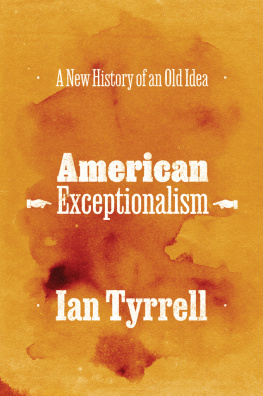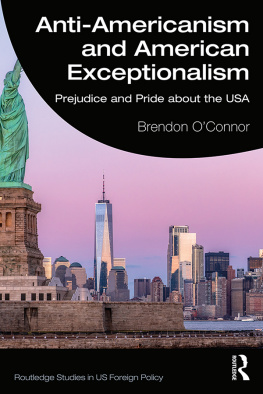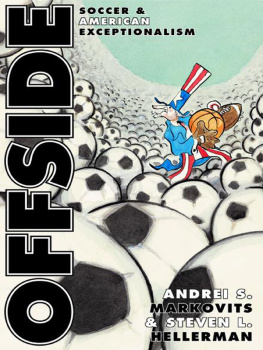A DESIRE CALLED AMERICA
A Desire Called America
BIOPOLITICS, UTOPIA, AND THE LITERARY COMMONS
CHRISTIAN P. HAINES
FORDHAM UNIVERSITY PRESS
New York 2019
Fordham University Press gratefully acknowledges financial assistance and support provided for the publication of this book by Penn State University.
Copyright 2019 Fordham University Press
All rights reserved. No part of this publication may be reproduced, stored in a retrieval system, or transmitted in any form or by any meanselectronic, mechanical, photocopy, recording, or any otherexcept for brief quotations in printed reviews, without the prior permission of the publisher.
Fordham University Press has no responsibility for the persistence or accuracy of URLs for external or third-party Internet websites referred to in this publication and does not guarantee that any content on such websites is, or will remain, accurate or appropriate.
Fordham University Press also publishes its books in a variety of electronic formats. Some content that appears in print may not be available in electronic books.
Visit us online at www.fordhampress.com.
Library of Congress Control Number: 2019939349
Printed in the United States of America
21 20 19 5 4 3 2 1
First edition
For my mother, Donna M. Haines: To the moon and back.
CONTENTS
Make America Great Again. The short-term history of this phrase speaks to Donald Trumps strange combination of anti-establishment rhetoric, political and financial corruption, verbal and physical violence, and popular appeal. It conjures up images of rallies in which racist, ableist, and xenophobic cries are delivered with religious fervor. These rallies are a postmodern tent revival in which violent intensity promises to accelerate providence, though a providence that has as much to do with entrepreneurial success as anything spiritual. Trump and his supporters are winners; the rest of the world are losers; and America will return to its appointed position of greatness only if it gives itself over to this fundamental truth.
Its tempting to see Trumps rise from businessman to candidate to president as unprecedented, and certainly the zeal he inspires in a large portion of the U.S. electorate is quite distinct. That being said, the Trump phenomenon conforms to Stuart Halls articulation of authoritarian populism as an exceptional form of the capitalist statewhich, unlike classical fascism, has retained most (though not all) of the formal representative institution in place, and which at the same time has been able to construct around itself an active popular consent. In short, Trump represents a difference in degree rather than kindan intensification of the right-wing swing in U.S. politics that has been ongoing since the 1970s. It should come as little surprise, then, that Make America Great Again first appeared as a slogan during Ronald Reagans 1980 presidential campaign (Lets Make America Great Again).
Make America Great Again speaks to a failure of political imagination. It is an anti-utopian slogana reactionary call to respond to declining socioeconomic conditions through racism, misogyny, homophobia, transphobia, and xenophobiabut it is also symptomatic of an inability on the part of liberals and the left to mobilize a popular alternative to neoliberalism. In terms of U.S. party politics, this failure has to do with the way in which the New Democrat program of triangulation, or the turn to centrism, has narrowed the gap between the politics of Democrats and Republicans; it is this neoliberal convergence that helped to ensure the relative success not only of Trump but also of Bernie Sanders during the 2016 presidential campaign season. More generally, with the exception of some notable social movements (for example, Occupy and Black Lives Matter), left-wing political aspirations have increasingly shifted toward norms of inclusion, representation, and equal opportunity, marginalizing efforts at systemic social change. The war on poverty has been replaced by a mission to diversify the ranks of the upwardly mobile, as antiracist, anticapitalist, feminist, and queer politics increasingly accommodate neoliberal models of governance.
This failure of political imagination should be understood in terms of the American lefts abandonment of its utopian impulse. The U.S. left hasnt simply been outflanked by the right. It has surrendered its utopian vocation to it. Put differently, it has given up on the desire to fundamentally change societya desire embodied, for example, in nineteenth-century Populism and the antisystemic movements of the 1960sin favor of fragmentary efforts to ameliorate the worst social pathologies. This claim shouldnt be conflated with the notion that the rise of identity politics has led to a fragmentation of the left. To the contrary, what remains of American utopianism is most evident in movements such as Black Lives Matter, which not only reckon with injustice and inequality but also propose expansive visions of the future. Instead, the failure has to do with the abandonment of systemic change, or the substitution of piecemeal reform for efforts to construct another world. This book argues that the utopian impulse has lingered on in U.S. literature and that it has done so in the form of a strange reversal of American exceptionalism, that is, a reversal of those practices that elevate the United States to the position of model nation, immunizing it from critique through narratives of global salvation. Literature has become a place in which that desire called Americathe belief that the United States is a land of unique social, political, and cultural vitalitycomes to be imagined against the grain of exceptionalism. In other words, there is a tradition of U.S. literature, going back to at least the nineteenth century, that pushes the revolutionary potential of American exceptionalism to the point where its nationalist-capitalist frame breaks. This literature invents what I call a singular Americaa counter-nation in which statist and capitalist social structures give way to the commons (an egalitarian and radically democratic form of social solidarity). Although literature certainly cannot fix the United States, it can offer an education in a desire called America, a lesson not in what America is but in what it might become.
A Singular America: Between Exceptionalism and Its Critique
There is no redeeming Americano act of transcendence capable of expunging the histories of empire and genocide, slavery and internment, that compose America. At the same time, that desire called America persists. It persists not only as an ideological appeal but also as an impulse to experiment with new forms of political life. This impulse is recognizable in colonial and postcolonial myths of a new American race. Thomas Paine writes of the American Revolution:
We have it in our power to begin the world over again. A situation, similar to the present, hath not happened since the days of Noah until now. The birthday of a new world is at hand and a race of men, perhaps as numerous as all Europe contains, are to receive their portion of freedom from the event of a few months.
In this view, Paines revolutionary zeal is but the ruse of imperial reason.
There is, however, a surplus of social potentiality immanent in the long arc of American exceptionalisma singular America that doesnt transcend exceptionalism but lives within and against it. This singular, though not single, America exposes the United States to a threshold through which it becomes other than itself; it makes good on the exception in exceptionalism to such a degree that the normative model of America bursts apart. In this context, Paines birthday of a new world no longer entails the reiteration of Mans empire over earth but the interruption of Manthe suspension of the



